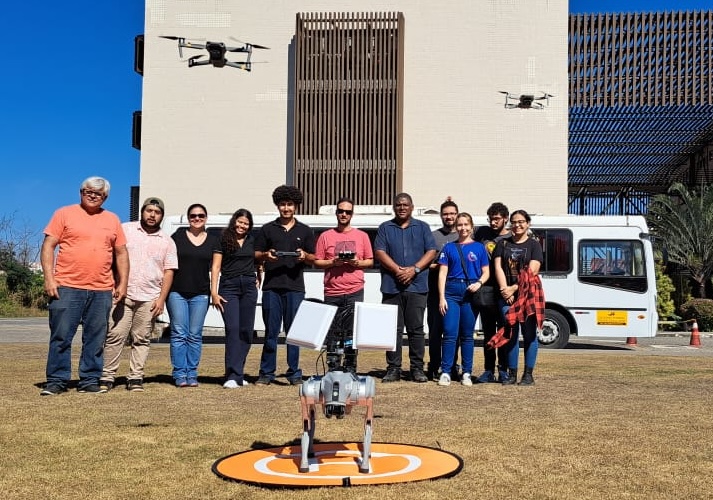Breaking Out News Series – Unlocking Brazil’s potential in ship recycling
We are excited to launch our Breaking Out News Series, in anticipation of the second edition of our Ship Recycling Lab in Lisbon this October. Highlighting innovators who believe in competitive, responsible practices, we challenge damaging methods of ship dismantling on tidal beaches and advocate for safer, cleaner and smarter alternatives.
Our first post focuses on why Brazil is poised to become a significant player in the global ship recycling market. With its extensive coastline and robust maritime industry, many existing facilities, primarily engaged in shipbuilding and repair, have the potential to expand into recycling.
Professor Newton Pereira of Universidade Federal Fluminense (UFF) tells us that Brazil is likely to become an important destination for ship owners looking for the sustainable disposal of their assets. From already existing large infrastructure in the States of Rio de Janeiro, Rio Grande do Sul and Pernambuco to strict national regulations on hazardous waste management, from a soon to be approved national bill mirroring the European Union Ship Recycling Regulation to the shift in policy of the countries oil and gas company Petrobras and the scrapping of Petrobras’ P-32 and P-33 in Brazil, the country stands on the cusp of radical transformation.
UFF plays a is crucial role in this transformation through its Center for Sustainable Systems Studies (CESS/UFF), which focuses on hazardous waste management, optimisation of recycling methods and the scrap steel market to ensure Brazil has a qualified workforce, innovation and resources needed to support its own solutions for ship recycling.


According to recent figures, dozens of fixed and floating oil and gas platforms and more than 300 large commercial ships regularly operating in Brazilian waters will be retired in the next decade. Brazil’s potential in ship recycling will be further explored by several experts, including Petrobras’ representatives and Professor Pereira, at the upcoming Ship Recycling Lab in Lisbon.

Related news

Press Release – Platform publishes list of ships dismantled worldwide in 2020
630 ocean-going commercial ships and offshore units were sold to the scrap yards in 2020. Of these vessels, 446 were broken down on South Asian beaches, amounting to near 90% of the gross tonnage dismantled globally.
... Read More
Press Release – Toxic aircraft carrier São Paulo rejected by Turkey returning to Brazil
The toxic waste-laden aircraft carrier São Paulo is on its way back to Rio de Janeiro, Brazil. Environmental and labour groups declare victory.
... Read More
Platform News – Authorities and industry discuss ship recycling in Turkey at NGO Shipbreaking Platform and IMPEL workshop
Following the publication of a report on the Turkish ship recycling sector in Aliağa, the NGO Shipbreaking Platform and the European Union Network for the Implementation and… Read More

Platform News – NGO Shipbreaking Platform presents Impact Report 2018/2019
These past two years the Platform has won support for sustainable ship recycling in the financial sector while raising the stakes for ship owners who opt for… Read More

Press Release – Danish opposition parties call on Government to stop beaching of Maersk vessels
The Danish Environment Minister, Esben Lunde Larsen, had to answer to the Parliament yesterday following questions put to the Government by all the opposition parties. The… Read More

Press Release – Conditions of shipbreaking workers in India remain appalling
The New Indian Express reveals that conditions for the shipbreaking workers at the beach of Alang, India, have not improved.
... Read More
